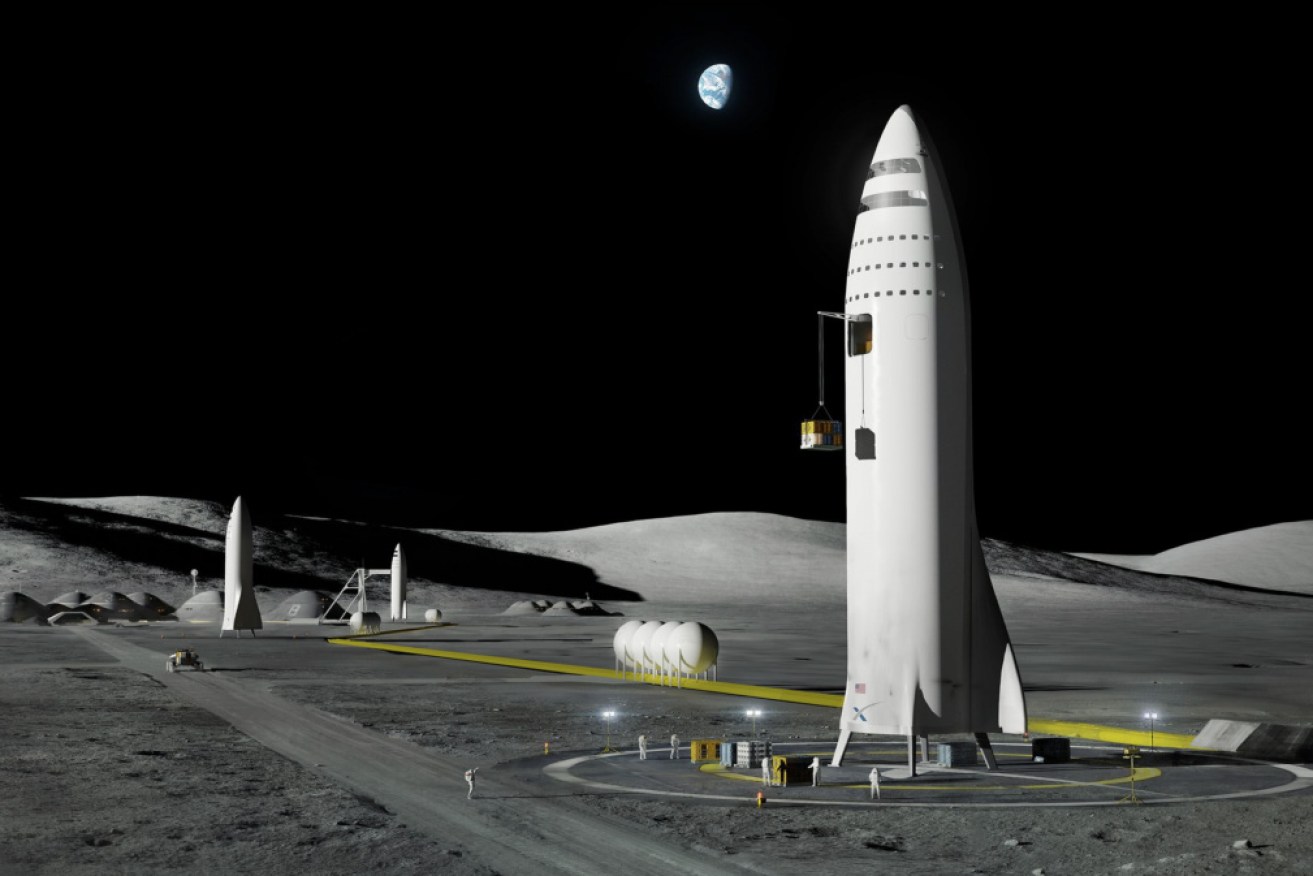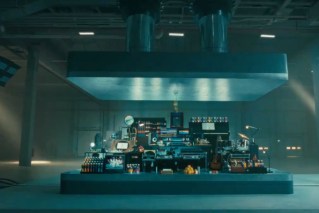SpaceX wins NASA Moon lander contract


An artist's rendering - made available by Elon Musk in 2017 - depicts a SpaceX rocket design on the Earth's moon. Photo: AP
NASA has chosen billionaire entrepreneur Elon Musk’s private space company SpaceX a $US2.9 billion ($A3.7 billion) contract to construct a spacecraft to take astronauts to the moon by 2024.
The decision to reward Tesla Inc’s bid is seen as a major vote of confidence in SpaceX, which prevailed over tenders from defence contractor Dynetics and Jeff Bezos’ Blue Origin, who had partnered with Lockheed Martin Corp, Northrop Grumman Corp and Draper.
The US space agency made the announcement of the contract for the first commercial human lander, part of NASA’s as part of the Artemis program, in a video conference on Friday (local time).
NASA said the lander will carry the two American astronauts to the lunar surface.
“We should accomplish the next landing as soon as possible,” said Steve Jurczyk, NASA’s acting administrator.
“This is an incredible time to be involved in human exploration, for all humanity.”
“If they hit their milestones we have a shot at 2024,” Mr Jurczyk added.
NASA said it would require a test flight to the moon before humans make the flight.
“In addition, NASA is requiring a test flight to fully check out all systems with a landing on the lunar surface prior to our formal demonstration mission,” NASA official Lisa Watson-Morgan said.
Tweet from @SpaceX
The NASA announcement added to an extraordinary run for Mr Musk, who is one of the world’s richest people thanks to his 22 per cent stake in electric car maker Tesla.
Tesla has become the world’s most valuable automaker, with a market capitalisation of $US702 billion ($A908 billion), far surpassing the auto industry’s giants.
NASA said in a news release that SpaceX’s HLS Starship, designed to land on the moon, “leans on the company’s tested Raptor engines and flight heritage of the Falcon and Dragon vehicles”.
It said Starship includes a spacious cabin and two airlocks for astronaut moon walks and that its architecture is intended to evolve to a fully reusable launch and landing system designed for travel to the Moon, Mars and other destinations in space.
NASA’s decision was a setback for Mr Bezos, a lifelong space enthusiast and one of the world’s richest people, who is now more focused on his space venture after having announced in February he would step down as Amazon CEO.
The Washington Post first reported that SpaceX won the contract, before the official NASA announcement.
The contract was seen by Mr Bezos and other executives as vital to Blue Origin establishing itself as a desired partner for NASA, and also putting the venture on the road to turning a profit, Reuters had reported in February.
SpaceX announced on Wednesday it had raised about $US1.16 billion ($A1.50 billion) in equity financing.
Mr Musk has outlined an ambitious agenda for SpaceX and its reusable rockets, including landing humans on Mars.
But in the near term, SpaceX’s main business has been launching satellites for Mr Musk’s Starlink internet venture, and other satellites and space cargo.
-with AAP








